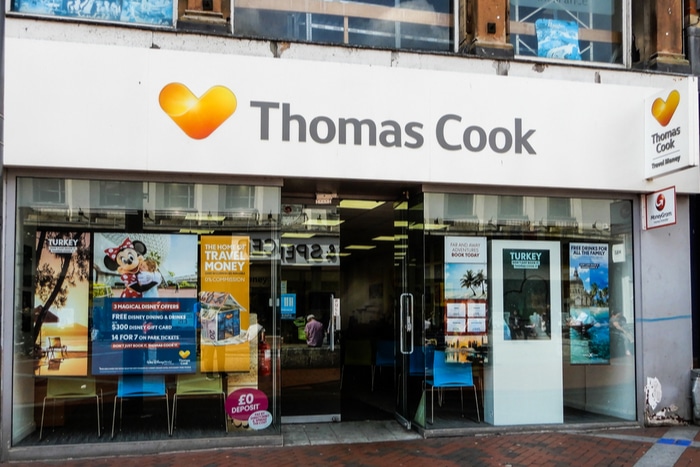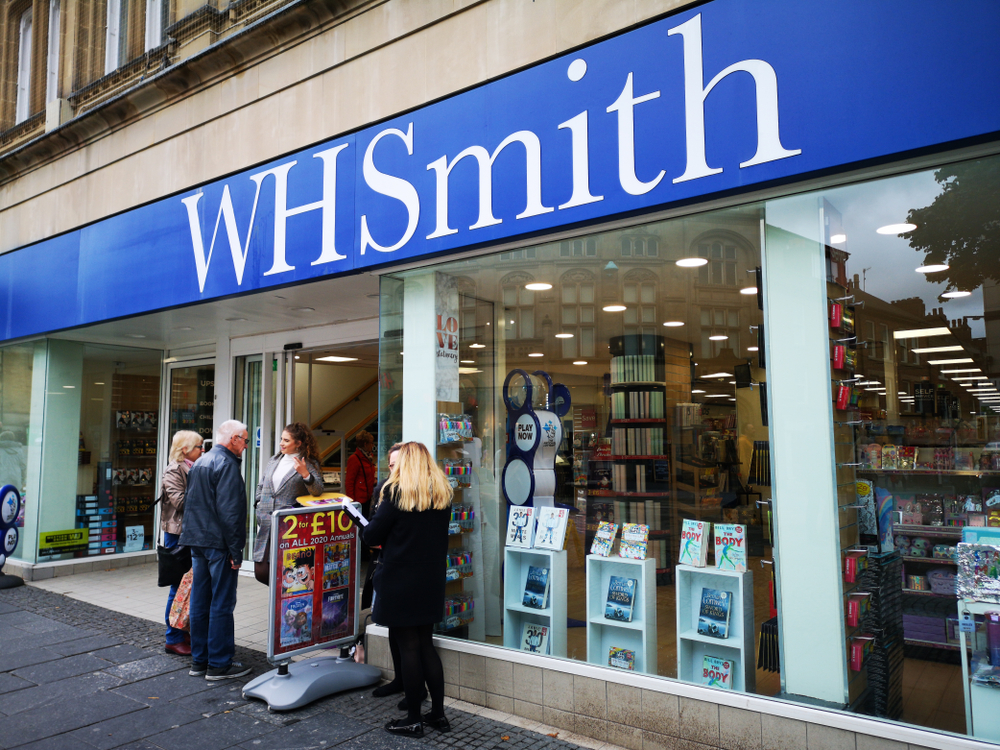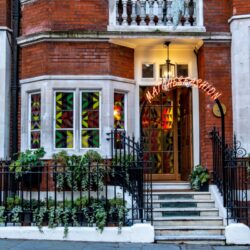// Government tax policy denied Thomas Cook’s shops in England a £2.5m tax stimulus, says Altus
// Altus says it should’ve been a “winner” under the 2017 business rates revaluation but the policy meant they were denied the relief
// Last week, 600 of Thomas Cook’s high street shut down as the company collapsed
Thomas Cook’s high street shops in England were “denied” a £2.5 million tax cut due to government policy around business rates, a leading real estate advisory firm has said.
According to Altus Group, the tour operator should have been a “big winner” under the 2017 business rates revaluation.
It said its rateable value on its retail stores in England and Wales, which form the basis of the property tax calculation for business rates, fell by almost 14 per cent from £32.59 million to £28.17 million.
READ MORE:
- 600 Thomas Cook high street stores shut down amid company collapse
- £115m of refunds denied in “cumbersome” business rates appeal system
- Bailiffs sent to 310 premises each day for business rates arrears
However, in order for the government to help pay for relief to phase in increases for those businesses facing sharp rises in business rates, strict punitive limits were imposed on tax reductions for those properties in struggling areas where property values and rents plummeted.
Using Thomas Cook’s Swindon branch as an example, Altus said the store saw its rateable value fall significantly from £229,000 to £139,000 – but due to the government policy, it would have paid an extra £146,000 in tax under the 2017 revaluation.
Data analysis by Altus suggests that through the policy of “Downward Transitional Relief” – which only applies to tax bills in England – Thomas Cook’s retail stores in England were “denied” tax reductions of £2.49 million under the policy so far since the 2017 revaluation came into effect.
The overall business rates bill for Thomas Cook’s retail shops in England and Wales was £11.76 million this financial year, Altus said.
Altus head of UK business rates Robert Hayton said that while Thomas Cook was “treated unfairly by the system”, the policy has been hugely damaging for high streets in England as a whole.
He said it so far cost the retail sector £1.12 billion.
“The 2017 revaluation will only gradually alleviate costs pressures on firms with large premises that saw property values plummet seeing a real term fall in business rates bills of no more than 13 per cent by 2021 allowing for inflation,” Hayton said.
“Whilst it it too late for Thomas Cook, abolishing these ridiculous restrictions on tax reductions would put fairness back into the heart of the English business rates system where the effects will be far more pronounced for the high street at the next revaluation.
“However, it is imperative to maintain the capping of large increases as they do act as an important shock absorber.”
Business rates are devolved in Wales, Scotland and Northern Ireland.
Last week, around 600 of Thomas Cook’s high street stores shut down after the travel company collapsed following an unsuccessful rescue bid.
Thomas Cook, the world’s oldest tour operator, ceased trading with immediate effect after failing in a final bid to secure a rescue package from creditors.
Alongside its raft of high street stores, the company’s four airlines were grounded and its 21,000 employees in 16 countries, including 9000 in the UK, became unemployed.
The collapse also sparked one of the biggest reparation schemes in UK history, as 150,000 British holiday makers were stranded abroad.
Click here to sign up to Retail Gazette‘s free daily email newsletter

















